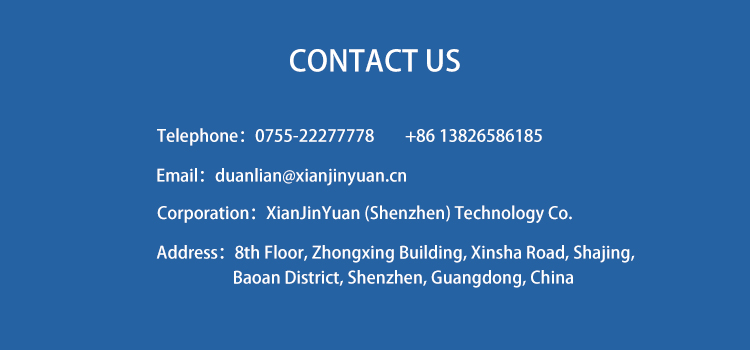

Hotline:0755-22277778
Tel:0755-22277778
Mobile:13826586185(Mr.Duan)
Fax:0755-22277776
E-mail:duanlian@xianjinyuan.cn
Electromagnetic compatibility refers to an electronic device that neither interferes with other devices nor is affected by them. Electromagnetic compatibility, like the safety we are familiar with, is one of the most important indicators of product quality. Electromagnetic compatibility involves personal and environmental protection, so it is necessary to provide electromagnetic shielding for equipment to reduce radiation interference from the environment, adapt to complex working environments, ensure the normal implementation of design functions, and improve the reliability and safety of equipment.
1. Conductive rubber
conductive rubberIt is to evenly distribute conductive particles such as silver plated glass, aluminum, and silver in silicone rubber, and to achieve good conductivity by pressing the conductive particles into contact. Its main function is sealing and electromagnetic shielding. The product can be molded or extruded, and there are options for sheet packaging or other die cut shapes. The shielding performance is as high as 120 dB (10 GHz).
Conductive rubber must withstand a certain amount of compression force to conduct electricity well, so the structural design must ensure appropriate pressure without overpressure. The optimal height compression of the board is 7-15%; The optimal height compression for solid circles and D-shapes is between 12-30%; The optimal height compression for tubular and P-shaped structures is between 20-60%.
2. Conductive cloth
conductive fabricThe material is chemically deposited or physically transferred metal nickel onto polyester fibers, and then coated with a highly conductive copper layer on top of the nickel. The copper layer is then electroplated with nickel metal that is resistant to oxidation and corrosion. The combination of copper and nickel provides excellent conductivity and good electromagnetic shielding effect, with a shielding range of 100K-3GHz.
TECHNICAL INDEX
Surface resistance: ≤ 0.05 Ω/inch (100g load)
Shielding effect: 60 dB~80dB/30MHz~1GHz
Heat resistant temperature:- 10℃-110℃
Tensile strength: ≥ 1.3(kg/25mm)
Initial adhesion force: 1600g/25mm
Maintain adhesion: 1440Min/inch
Flame retardant grade: Pass UL
3. Conductive foam
Conductive foamIt is wrapped with conductive cloth on flame-retardant sponge, and after a series of treatments, it has good surface conductivity, which can be easily fixed on the device to be shielded with adhesive tape. There are shielding materials available in different cross-sectional shapes, installation methods, UL ratings, and shielding effectiveness.
TECHNICAL INDEX
Average shielding performance: 90dB
Surface resistance: above 0.07 Ω/㎡
Operating temperature: - 40°C~70°C
Permanent compression deformation: 8% to 20%
Fire Protection: UL Certification
4. Conductive cloth tape
Conductive cloth tapeIt is a back adhesive with high conductivity, which has excellent flexibility, suitable for various surfaces, and can withstand high temperatures up to 200 ° C.
characteristic:
◎ Good conductivity and shielding effect
◎ Good anti friction performance, with anti friction times up to 5000000 times
Good metal adhesion and Z-conductivity
◎ Good processability, soft texture, no burrs during cutting, anti handprint dirt, and anti-oxidation treatment
TECHNICAL INDEX
Body resistance: 0.03-0.06 Ω/㎡
Shielding performance: 80dB
Adhesive properties: Thermally sensitive conductive pressure-sensitive adhesive
Temperature range: - 10°C~120°C
5. Conductive shielding tape
Conductive shielding tapeIt is a type of metal foil or conductive cloth with high conductivity backing adhesive. The conductive backing adhesive and conductive substrate form a complete conductive body, which can be bonded to any metal surface to achieve electrical overlap and electrical sealing of gaps. Shielding conductive tape is an economical and convenient shielding material.
Used to seal EMI shielding chambers, shells, and electronic equipment seams, wrap cables for shielding, provide reliable grounding surfaces, and provide electrical contact for surfaces that cannot be welded.
6. Conductive coating
Anti electromagnetic wave interference shielding coating, commonly known as conductive paint. Conductive paint is a type of paint that uses composite particles containing copper, silver, and other materials as conductive particles, and has good electrical conductivity. Conductive paint, through spraying and brushing, gives completely insulated non-metallic or non-conductive surfaces the characteristics of absorbing, conducting, and attenuating electromagnetic waves like metals, thereby playing a role in shielding electromagnetic wave interference.
Technical Parameter
Conductive effect: ≤ 0.025 Ω/cm ² (paint film thickness not less than 20 μ m)
Application conductivity parameters: 1 Ω/20 μ m film thickness/distance 10cm
Suggested film thickness: 20-25 μ m
7. Microwave absorbing materials
Microwave absorbing materials are materials that can absorb microwaves and electromagnetic energy with minimal reflection and scattering. Also known as radar absorbing material or radar stealth material.

Advanced Institute (Shenzhen) Technology Co., Ltd, © two thousand and twenty-onewww.avanzado.cn. All rights reservedGuangdong ICP No. 2021051947-1 © two thousand and twenty-onewww.xianjinyuan.cn. All rights reservedGuangdong ICP No. 2021051947-2